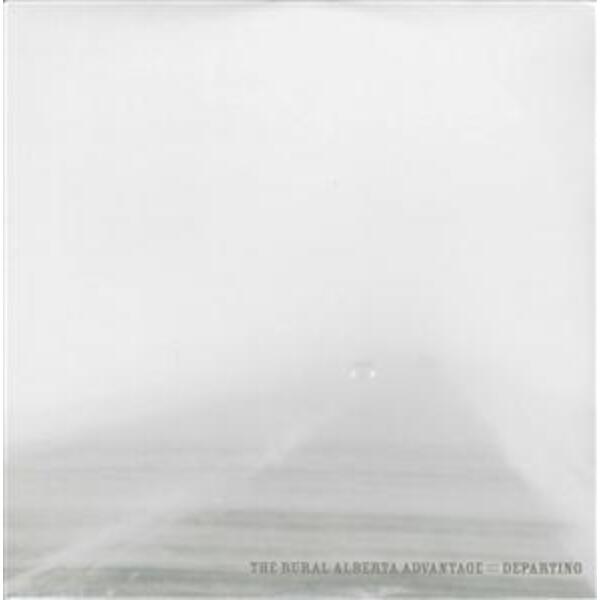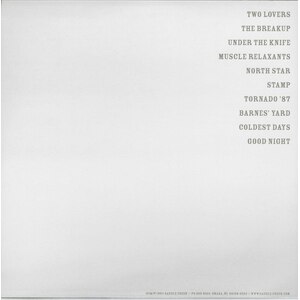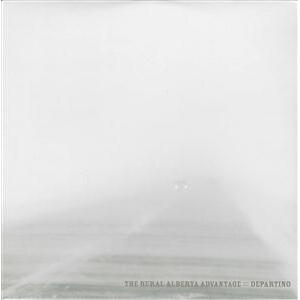Information/Write-up
The Rural Alberta Advantage may be a humble, charming trio playing ramshackle folk-rock, but on their sophomore record they face a problem more often associated with gangsta rappers and superheroes: What happens after you've covered the origin story? "The Ballad of the RAA" aside, Hometowns wasn't entirely autobiographical, but whether giving a voice to remote outposts ("Frank, AB", "The Dethbridge in Lethbridge", "Edmonton") or detailing quotidian domestic inertia in "Don't Haunt This Place", the experiences felt deeply embedded within them-- the proverbial record it took a lifetime to write.
While Departing can't quite match its bolt-from-the-blue predecessor, it's not for the usual reasons: There are no dubious genre experiments, no interference from a bigger budget, no pressure of serious time constraints. Simply put, the stakes feel lower here, and there's an attendant lack of urgency now that they're no longer struggling to be heard.
Strangely enough, Departing sounds more like an augmented solo project than the work of the full-bodied band that toured tirelessly after the self-released Hometowns in 2008. Which is not to say Nils Edenloff isn't a capable quarterback: While the Jeff Mangum comparisons won't be going away any time soon, he works well within the context of the band's sparely arranged acoustic rock, his pointed lyrics and astringent tone hearkening to folk traditions that go back way further than In the Aeroplane Over the Sea.
But for a band that relies on its stage instrumentation, reducing Amy Cole and Paul Banwatt to bit players proves a disappointing and somewhat baffling under-utilization of resources. On Hometowns, Cole's keyboards offered a quirky counterpoint to an otherwise handcrafted sound, while her harmonies maintained a warm conversational tone with Edenloff. But on Departing, her contributions frequently feel like mere cameos. Meanwhile, Banwatt-- a drummer of stunning technical proficiency and inventiveness-- is far too often relegated to mere timekeeping. None of this is true on first single "Stamp", the centerpiece that towers over Departing: The desperation of Edenloff's galloping strums matches his cry that "the hardest thing about this love is that you're never coming back." Cole leads the whooping holler of a chorus, while Banwatt rattles off octopus-armed fills as if releasing the aggression that's pent up elsewhere.
Although Hometowns felt more immediate, the songs themselves tended to burrow subtly into your conscience. With a low-key charm, the better moments of Departing do the same; "Two Lovers" and "The Breakup" begin Departing with deceptive titles-- the former is a spare and lovelorn shuffle in which Edenloff bays, "If I ever hold you again/ I'll hold you tight enough to crush your veins," whereas "The Breakup" draws specificity out of seemingly mundane details ("Cut a line in the snow with our boots/ To split this city in two").
The relatively sparse and chilly tone of Departing ultimately feels less like a slump than a conscious decision to present itself as the wintertime counterpart to Hometowns' prairie summer. But in the end, it's sort of like spending a bitter December night snuggling a pillow instead of a person-- if you can get over a certain sense of disappointment at what's not there, it's still quite comforting.
Ian Cohen, Pitchfork



No Comments